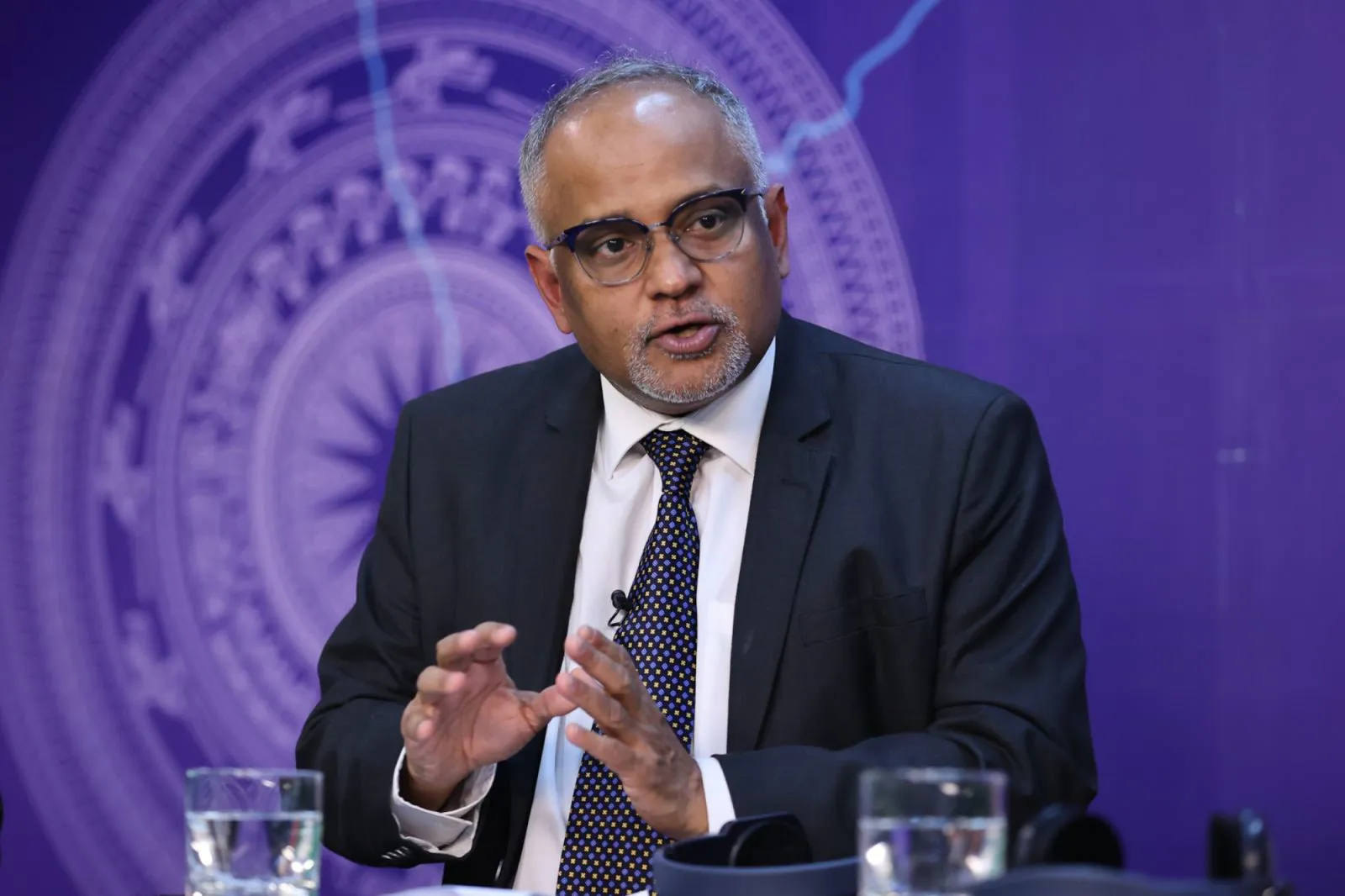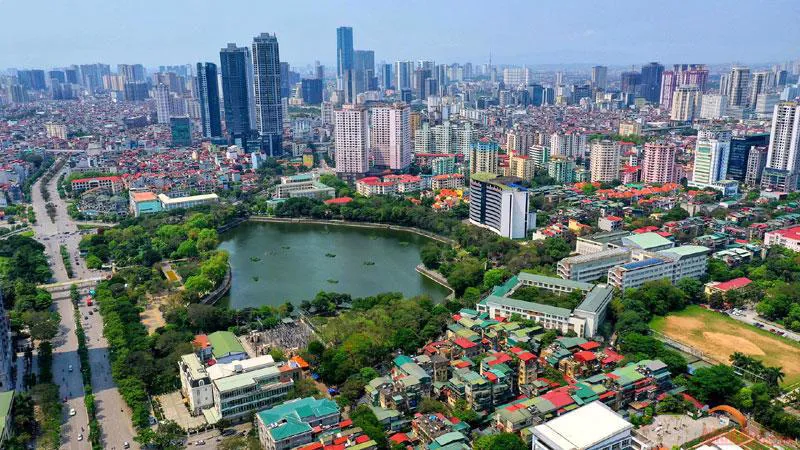Domestic market key for Vietnam’s economic growth: ADB
In 2024, amid subdued global demand and ongoing geopolitical tensions, Vietnam's export-led growth faces challenges in full recovery. To counter this, proactive domestic policies are needed to stimulate demand and improve the business climate.
ADB Country Director for Vietnam Shantanu Chakraborty spoke to The Hanoi Times about Vietnam’s economic prospects and the key drivers propelling the country forward.
| ADB Country Director for Vietnam Shantanu Chakraborty. Source: VGP |
What is your view on Vietnam’s economic prospects in 2024 and 2025? Is the GDP growth of 6-6.5% GDP growth target for Vietnam achievable given the improved global economic forecasts this year?
ADB maintains an optimistic view of Vietnam’s economic prospects in 2024, albeit with caution amid global uncertainties. The economy is expected to grow 6% in 2024 and 6.2% in 2025.
On the supply side, a relatively broad-based growth restoration in services, export-led manufacturing, and stable agriculture would support the gradual recovery momentum.
On the demand side, positive inflows of FDI and remittances, a sustained trade surplus, recovered domestic consumption, and continued fiscal stimulus with a substantial public investment program are expected to boost economic growth in 2024.
However, downside risks from global geopolitical uncertainties and exposed domestic structural vulnerabilities could weigh on growth. Softened global demand caused by slow economic recovery and delayed normalization of interest rates in the US and other advanced economies, coupled with continued geopolitical tensions, would act as constraints to a full recovery of Vietnam’s export-led growth.
FDI in Vietnam continued to increase in the first three months of 2024, but it is concentrated only in the big cities such as Hanoi, Ho Chi Minh City, and Haiphong…which accounted for about 78% of the investment capital of the country. Is this an issue that Vietnam needs to address in the future?
| Hanoi from above. Photo: Le Viet/The Hanoi Times |
Vietnam's ability to attract FDI continued to be impressive in the first quarter of 2024 with committed FDI reaching nearly US$6.2 billion, up 13.4% over the same period last year.
FDI inflows are less susceptible to short-term fluctuations, emphasizing a focus on long-term prospects. This underscores investors' continued recognition of Vietnam's economic potential in international trade and investment integration. Generally, FDI firms would look for efficient logistics and labor supply locations, as well as clusters of related business ecosystems, so that their operations can be predictable and cost-competitive.
Hanoi, Ho Chi Minh City, Bac Ninh, and Haiphong… are major industrial centers of the country, housing numerous industrial parks and export processing zones. FDI concentration in these locations is as expected and could continue in the near term.
In order to promote inclusive and diversified development, there is a legitimate need to broaden the geographical base for incoming FDI. To this end, expanding infrastructure coverage is a crucial factor, supported by conducive regulatory measures in a broad range of areas, including a facilitative business environment, labor upskilling and migration, urbanization, and a healthy living environment for both investors and workers.
Also, in terms of FDI, although the overall capital source has increased, there are no large-scale projects, according to the MPI. What is your view on this?
It should be noted that project size varies from sector to sector, depending on the needs of the investors, including their approach to phasing their investments. For example, in 2023, about 20% of total registered FDI was additional investment to existing projects, indicating a healthy need to expand existing ones.
A closer look at project size by sector suggests that historically, Vietnam has attracted larger projects in energy, real estate, mining, water supply, and entertainment sectors. These are capital-intensive sectors, with sizable assets required for business operations.
Vietnam has opportunities to attract large-scale FDI into the infrastructure sector, considering the strong emphasis on green transition, to undertake green infrastructure projects in transport, energy, urban facilities, etc. This requires a broad range of measures, including the promotion of public-private partnerships in large-scale projects, improving the business environment by undertaking meaningful regulatory reforms, speeding up approval processes, and developing the financial sector and capital markets to enable long-term financing solutions.
| Electronics production at 4P Company in Hung Yen Province. Photo: Khac Kien/The Hanoi Times |
What do you see as the main challenges facing Vietnam’s economy in the coming time? What are your recommendations for Vietnam to overcome these challenges?
First, weak global demand will hamper export-oriented manufacturing and dampen trade and investment prospects, with negative implications for employment. Intensifying geopolitical tensions in the world will continue to put pressure on global commodity markets, and lead to a reshuffle of the global supply chains. Sustained high interest rates in the US and Europe and a stronger US dollar may cause further problems for the recovery of external demand and lead to a weakening of the dong exchange rate.
Second, domestic systemic challenges with disbursements of public investment and structural weaknesses in the real economy are the main downside risks to the economy. The export sector is heavily reliant on FDI investment, with this segment accounting for over 70% of total exports. The collapse in external demand has been very significant, while domestic enterprises and consumers are not in a position to fill the gap.
Third, regarding the business environment, complex and bureaucratic procedures have also been an important factor in increasing the costs of doing business and limiting the recovery of domestic demand, which is critical for the real economy.
Finally, public investment and fiscal measures have also been less effective due to delays and constraints in their implementation, resulting in a lower-than-expected stimulus to the economy.
Looking ahead to 2024, softened global demand caused by slow economic recovery and continued geopolitical tensions would continue to slow the full recovery of Vietnam’s export-led growth. This means that its external demand is unlikely to recover very meaningfully, despite recent positive signs.
Therefore, Vietnam needs to look for alternative growth drivers from the domestic market. Vietnam’s policies should be more proactive to stimulate domestic demands and improve the business climate. The good news is they can build on that positive experience in both monetary and fiscal policies in 2023, and strengthen their coordination for effective implementation.
Thank you for your time!














